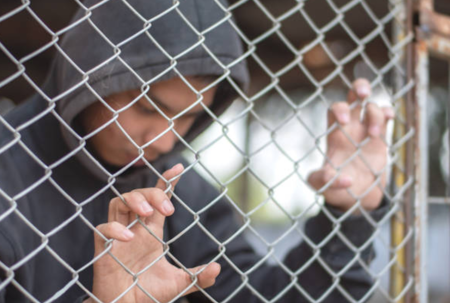In today's digital landscape, social media isn't merely a space for personal expression—it’s a potential minefield for legal implications, particularly in juvenile crime cases. For parents, guardians, and legal professionals, understanding how social media intersects with juvenile justice is essential. This guide delves into the critical aspects of social media in juvenile crime, offering insights into legal processes and protective measures for young Internet users.
How Can Social Media Activity Impact Juvenile Crime Cases?
Social media can significantly influence juvenile crime cases, often serving as crucial evidence. What might appear as innocent online interactions can have substantial legal consequences. Platforms like Instagram, Snapchat, and TikTok can unintentionally provide authorities with evidence, such as images or statements that indicate involvement in criminal activities or contradict alibis.
The concept of "digital footprints," which includes all digital interactions, is frequently used by legal teams to support or counter claims in court. Mismanaged social media activity can misrepresent a minor’s intentions, leading to potentially severe legal ramifications. Understanding this dynamic is crucial for protecting minors from unintentional legal consequences.
Additionally, the subjectivity of social media content interpretation means that what one person sees as a joke, others might perceive as a threat or confession. This highlights the necessity for juveniles and their guardians to grasp the potential far-reaching implications of online behavior.
What Are the Legal Consequences of a Minor’s Online Behavior?
Minors’ online behavior can lead to severe legal outcomes, impacting their immediate and future prospects. Incriminating posts on social media can be grounds for legal scrutiny, potentially resulting in charges. It's important to realize that, in many jurisdictions, online actions can bear the same legal weight as physical acts if they appear to incite or demonstrate participation in unlawful activities.
Consequences extend beyond the courtroom. Negative digital footprints can also affect educational opportunities, such as admissions or scholarships, as educational institutions increasingly review applicants’ social media presence. Parents and minors may not fully appreciate the permanence of online content, which can remain accessible indefinitely and be detrimental.
Beyond formal charges, the broader social repercussions of a minor's online behavior can be damaging, affecting relationships and social standing. Thus, it is vital for guardians to educate minors about the serious nature of digital communications.
Understanding Digital Footprints & Their Importance in Juvenile Justice
Digital footprints are records of online activity that can be pivotal in juvenile justice, providing evidence of timelines and corroborating or challenging court narratives. These footprints include social media posts, timestamps, geolocation data, and interactions.
Managing digital footprints is essential, especially for those involved in or accused within juvenile crime cases. A social media audit, awareness of privacy settings, and conscious posting can greatly influence legal interpretations of a minor's actions. Proactive oversight and education about digital behavior can prevent potential legal misunderstandings.
Effective management includes teaching minors about responsible online conduct, emphasizing privacy and the long-term implications of their online activities. This education can protect them from adverse legal consequences.
How Can Parents Monitor & Manage Their Child’s Social Media Use?
Parents play a key role in overseeing their children's social media use. Combining open dialogue, trust-based oversight, and technical tools is effective. Communication about online activity encourages transparency and responsible usage.
Tools such as parental control apps and built-in platform features for monitoring activity, setting usage limits, and restricting content are valuable. Remaining informed about emerging trends and platforms helps parents stay proactive against potential digital threats.
Establishing household rules for internet use, such as specific device usage times and enforcing screen-free periods, can mitigate excessive engagement with social media. Clear guidelines support a healthier digital environment for minors.
What Rights Do Juveniles Have Concerning Social Media Evidence?
Juveniles have specific rights regarding social media evidence, primarily centered on privacy and protection from unlawful search and seizure. Digital evidence must be legally acquired to be admissible in court, ensuring a minor’s rights are respected.
While minors possess privacy rights, these can be limited if the content in question is publicly accessible. Understanding platform privacy settings and terms is crucial to protect from unwanted legal exposure.
Guardians should be aware of these digital rights, but it is often beneficial to consult legal counsel well-versed in juvenile law. At Law Office of Dennis Kuntz, we ensure that a juvenile's rights are protected and navigate these complexities with expertise.
Case Examples Where Social Media Played a Key Role
Analyzing specific case examples where social media was instrumental reinforces its powerful but double-edged nature. Social media has been critical in identifying offenders and establishing case contexts. Lessons from these cases highlight how a single post or interaction can substantiate or refute criminal allegations.
Real-world examples demonstrate the dual ability of social media to exonerate individuals, presenting alternative narratives, or incriminate, indicating premeditated criminal behavior. This complexity shows the necessity for competent legal guidance.
Consulting Law Office of Dennis Kuntz can aid families in understanding and navigating similar situations, ensuring informed decisions backed by real-world legal experiences.
How Law Office of Dennis Kuntz Can Help Your Family Navigate Social Media-Related Legal Challenges
Understanding the legal landscape of social media in juvenile crime cases requires skilled legal guidance. At Law Office of Dennis Kuntz, we provide comprehensive and personalized legal strategies tailored to each client’s needs, focusing on protecting rights and clarifying the nuances of social media evidence.
We deliver thorough investigations and informed counsel, upholding minors’ rights and presenting clear legal pathways. Our dedication extends beyond the courtroom; we empower families with knowledge and proactive approaches to potential legal issues.
The Law Office of Dennis Kuntz commits to advocating for juvenile rights with nearly a decade of dedicated service. For support with social media-related legal challenges, reach out to us at (909) 200-4045 to explore our tailored solutions for your family’s specific needs.

